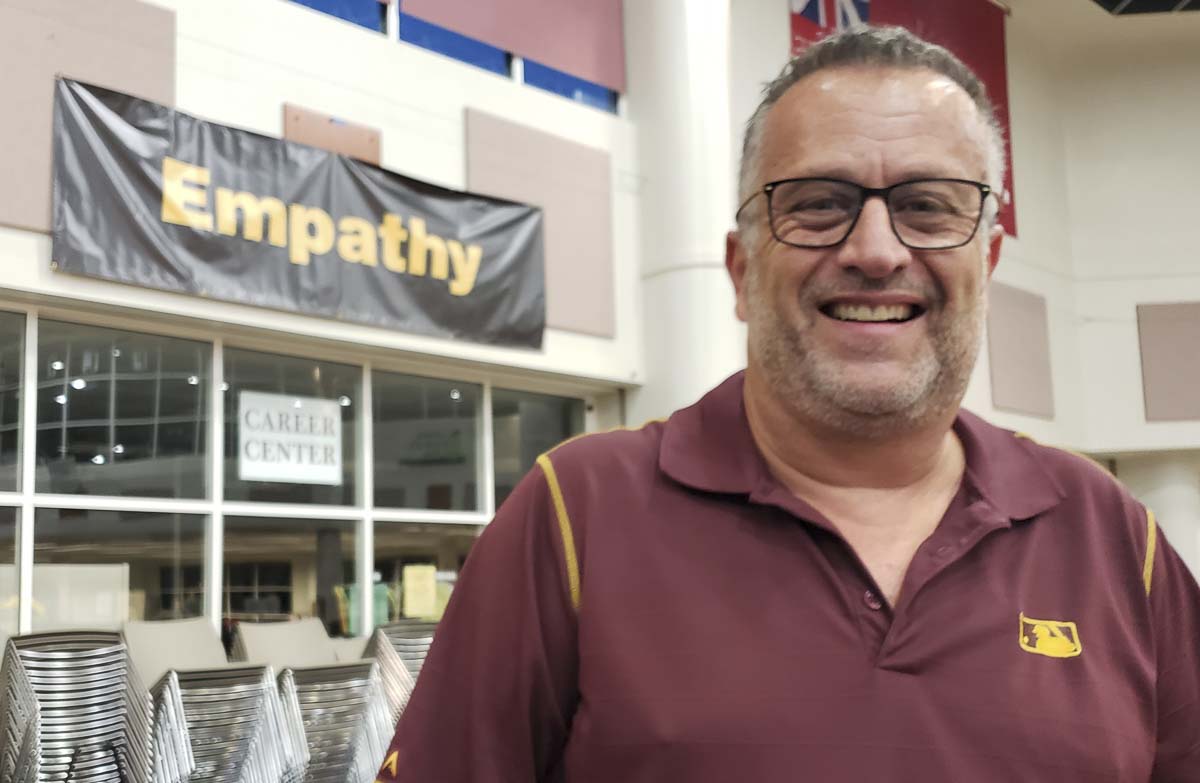Evergreen Baseball Umpires Association welcomed Dale Scott
VANCOUVER — He spent more than 30 years in the major leagues, calling it like he saw it.
Now he enjoys telling others just how he saw it, how he got to the big leagues, and how to become a better umpire

Last week, Dale Scott was the guest speaker at an Evergreen Baseball Umpires Association (EBUA) meeting, sharing a number of fun stories as well as one scary one, when he suffered another concussion and decided to retire.
For more than 30 years, Scott was an umpire on the grandest stage in the game.
He recalled his first game at Fenway Park.
“What am I doing here?” he remembered asking himself.
He remembers the first manager he ejected. That was Sparky Anderson, now in the Hall of Fame.
He was on the field for All-Star Games, playoff games, and worked three World Series.
These days, he enjoys sharing the memories with all baseball fans, but especially with those who he has a lot in common.
“It’s part of giving back,” he said of talking to local umpire associations which are vital to the game at the local level. “I used to be part of an association just like this in Eugene, Oregon.”
That is where Scott grew up, rooting for the Oregon Ducks. It is where he got his start as an umpire.
In 1981, he was in the minor leagues. By 1986, he was a full-time umpire in The Show.
“I’ve been fortunate to have the career I’ve had and the opportunities I’ve had,” Scott said.
He gave an initial presentation, then invited questions from the Evergreen umpires. In all, he spoke for close to two hours.
Many of the questions were “inside baseball” type inquires about umpiring. How does Major League Baseball evaluate the umpires? What is the safest way to protect yourself behind the plate? One asked advice on how to handle confrontation.
The use of replay in the major leagues also was a hot topic. Scott is for it, but with a limit.
EBUA working state playoffs
Five members of the Evergreen Baseball Umpires Association have earned their sports to work the state playoffs.
Four will work Saturday at state regionals. Joel Thompson will stay local, working the Class 4A regional at Propstra Stadium. Tom Martinko will be in Tacoma for a 3A regional. Carlos Butler is headed to Centralia for a 2A regional. And Steve Welborn will be in Chehalis for a 1B regional.
The following week, Dave Ratliff will be at Gesa Stadium in Pasco for the Class 4A and 3A final four.
“Nobody wants to miss a call, but if you miss a call and you can fix it …,” he said. “No matter how it got there, it’s correct.”
He hates, absolutely hates, the computerized strike zone box shown on television, though. He noted that a breaking ball might be caught way off the plate by a catcher, an obvious ball to the human umpire. But what if that ball, while breaking, caught just the edge of the plate? By definition, that’s a strike.
“Be careful what you ask for,” he said to those wanting a computer to call balls and strikes.
Of course, at the local level, replay is not an issue. However, one of the biggest threats to the game is happening at the local level.
“We are short on officials,” Scott said, noting all sports, not just baseball.
“It is directly because of abuse, the abuse sports officials are taking,” he said. “Older guys are retiring. Young people are trying it for a year or two. Then they take the abuse. ‘This sucks. I’m not going to do this anymore.’”
The art and science of umpiring is not perfect. Just like there is no perfect baseball player. The best in the business make mistakes. So naturally, those new to umpiring are going to make mistakes, as well. Fans need to take that under consideration, Scott said. The game needs umpires.
“To expect a game to be officiated perfectly is ridiculous,” Scott said.
As he ended his presentation, Scott took pictures with members of the EBUA.
“We train hard all year, and we like to do something for our guys,” said Tom Martinko, the training coordinator for the association.
Bringing in Scott to speak to the umpires, especially the new umpires, is rewarding as well as educational.
“What better way to learn that, from this guy to tell us how he got to where he got and how he improved himself?” Martinko asked.




